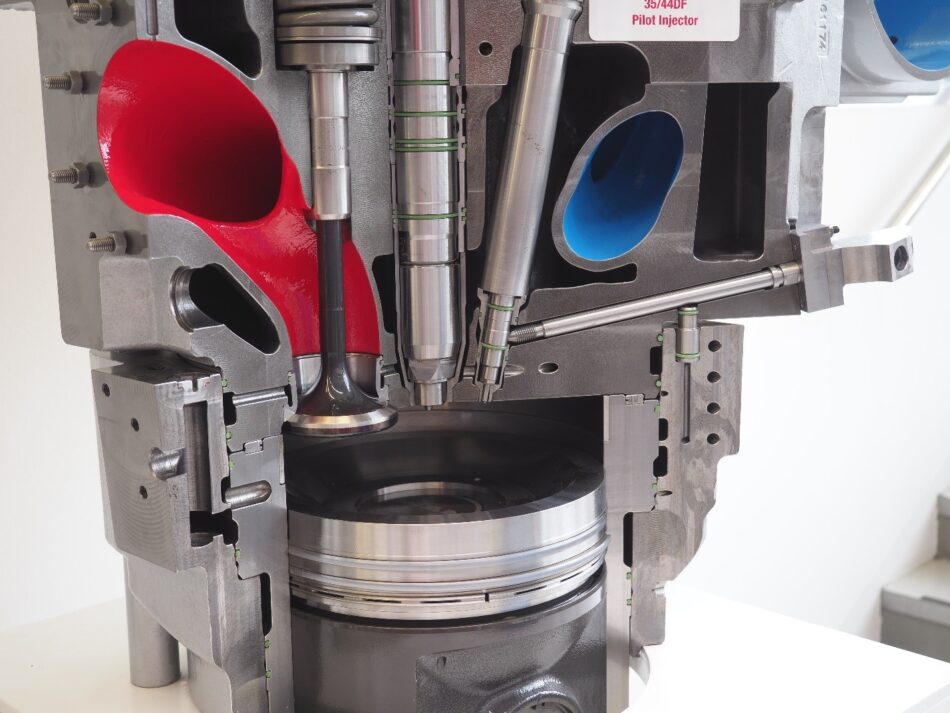Lights out. What are you going to do next? Believe it or not, power outages cost businesses $150 billion per year, so it can be a great idea to have a generator ready to go in case of an emergency. However, a power outage is only one potential use for a generator. There are many […]
Lights out. What are you going to do next?
Believe it or not, power outages cost businesses $150 billion per year, so it can be a great idea to have a generator ready to go in case of an emergency. However, a power outage is only one potential use for a generator. There are many others.
If you’re in the market for a great generator, diesel and natural gas generators are two options that you’ll want to consider. In this guide, we’ll tell you about the differences between a diesel vs. natural gas generator.
Understanding the Basics
Gas generators and diesel generators are very similar but they do have some key differences and they operate in different ways.
A gas generator is a type of generator that runs on gas and is usually hooked up to a gas line. This allows power to be generated from fuel that is easy to access.
So, what is a diesel generator? A diesel generator converts energy in diesel fuel to electricity. These generators usually have two main parts which include a diesel engine and an electrical generator.
Diesel generators are often used off the grid in places where other power sources are hard to come by. They’re commonly used by boats and ships or as backup power for homes or businesses.
Key Differences Between Natural Gas and Diesel Generators
If you’re thinking about buying a generator, you need to think carefully about your choice. Here are a few of the key differences between gas and diesel generators that you should know about.
Cost-Effectiveness
One of the key differences to consider between gas and diesel generators is their costs.
Natural gas generators are usually easy and cheap to make, so this makes them more affordable to buy. Natural gas itself is also cheaper to use, so running one of these generators for a longer period of time typically won’t be as expensive as with a diesel generator.
On the other hand, diesel is energy-efficient. This means that the diesel fuel that you use won’t get used up as quickly as when using natural gas.
Additionally, diesel generators require less maintenance overall when compared to gas generators. Natural gas generators tend to have higher maintenance costs and increased downtime.
Convenience
Convenience is also a factor to consider when choosing between a gas and diesel generator.
Natural gas generators have easy access to a gas supply since they will come directly from a gas pipeline. This makes it very convenient since many homes and businesses have easy access to natural gas.
With diesel, on the other hand, it will be necessary to store fuel in order to keep the generator running when needed. On top of this, these stores of fuel won’t last long and may only be good for a year or so.
When it comes to emergency use and accessibility, gas generators tend to be the better choice.
Performance
While natural gas generators are affordable and accessible, they don’t tend to perform quite as well as diesel generators do.
Diesel generators are reliable, strong, and offer great performance. They also don’t require as much maintenance as gas generators do, so they’ll be a lot easier to deal with.
Because diesel generators are strong and durable and have great performance, they have less need for maintenance when compared to gas generators.
Emissions
It’s also important to recognize that there is a difference between these two types of generators when it comes to emissions.
Natural gas generators are the cleaner option and don’t release sulfur, nitrogen, or carbon dioxide into the air to the extent that diesel generators do. In addition to this, natural gas generators are also less noisy and release fewer foul odors when compared to diesel generators.
Other Considerations When Buying a Generator
In addition to the differences above, it’s important to consider a few more things when choosing a gas or diesel generator. Here’s what you should think about.
Manufacturer Warranty
You should be sure to consider what kind of manufacturer’s warranty a diesel or gas generator has. New generators tend to have great manufacturer’s warranties that will help in case something goes wrong with them.
You’ll want to compare your options carefully when choosing a generator and should also consider a warranty extension as well.
Used or New
You’ll also need to decide between buying a new or used generator.
New generators can be a good choice because they’ll include manufacturer’s warranties. However, they are costly when compared to used generators.
In many instances, it’s better to get a used generator. Used generators will still work great and offer impressive performance when compared to newer ones.
Fortunately, there are a lot of used generators for sale. You’ll likely be able to find one that suits your needs.
Size
Whether you’re opting for a diesel or natural gas generator, you should also take the size into consideration as well
There are many things to think about to choose the right size for your needs. You’ll want to take the purpose of the generator into consideration and will also need to consider the size of your space and the power requirements of your appliances and equipment.
It’s a good idea to work with a certified electrician to determine your power usage and to check whether the generators you’re considering will be sufficient for your needs.
Making the Choice Between a Diesel Vs. Natural Gas Generator
When deciding what kind of generator to buy, be sure to consider the differences between diesel vs. natural gas generator options carefully. While diesel generators offer great performance, natural gas generators offer more accessibility and tend to be more cost-effective.
Need more helpful buying guides? Read through our blog now to find more useful tips.






